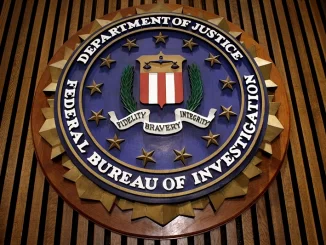

Commentary
Controversial topics often come up for discussion in the classroom. This can be good for learning, but only if teachers handle the discussion properly. There’s a fine line between a vigorous debate that leads to deeper understanding for students and a career-ending fight between teachers and parents.
Fortunately, skilled teachers know how to walk that line. Now, as provinces ramp up their COVID-19 vaccination campaigns, that skill is obviously more important than ever. Teachers need to provide accurate information about vaccines to their students while also respecting the right of students and their parents to make their own medical decisions.
Let’s start with some basic facts.
Regarding COVID-19 vaccines, the evidence is clear that the vaccines are both safe and effective. In fact, countries with high vaccination rates are seeing significant drops in hospitalization rates for COVID-19, and they’re beginning to loosen their restrictions. Two of the best-known success stories are Israel and the United Kingdom.
Israel rapidly vaccinated most of its population with the Pfizer vaccine while the United Kingdom relied primarily on the AstraZeneca vaccine. The dramatic drop in hospitalizations and deaths in both of these countries correlated with the distribution and administration of vaccines. While the Pfizer and AstraZeneca vaccines work differently, the evidence shows that both are highly effective.
This doesn’t mean that there are zero risks in administering vaccines. Like most medical treatments, these vaccines come with possible side effects. The AstraZeneca vaccine is linked to rare (about 1 in 100,000) blood clots while a handful of adolescents and young adults have experienced myocarditis (inflammation of the heart muscle) shortly after receiving the Pfizer vaccine.
However, it’s important to keep these adverse reactions in perspective. A handful of severe side effects from vaccines pales in comparison with the negative impact of COVID-19 on the lives of people. There’s no question that, for the vast majority of people, it’s far better to receive a vaccination than to contract COVID-19. In short, it makes sense to get vaccinated.
These are the facts that teachers need to share with their students. Given the significant amount of misinformation circulating about vaccines on social media, teachers need to help students distinguish between reliable and unreliable information. Students need to learn that some sources are better than others.
For example, it makes more sense to consult Health Canada and the Centers for Disease Control and Prevention for accurate vaccine information than to rely on internet memes, opinion articles from anti-vaccine websites, or anecdotes shared by random people on social media. Similarly, peer-reviewed articles in medical journals are much better sources than advocacy videos created by “experts” with dubious medical credentials.
At the same time, teachers shouldn’t let their own enthusiasm for vaccines turn into undue advocacy. Parents, not teachers, are the primary caregivers for their children and parental rights must be respected. It’s not the role of teachers to undermine the relationship between parents and their children. Parents entrust schools with their children during the school day and teachers must never abuse this trust or exploit it for their own ideological purposes.
This doesn’t mean that teachers should shy away from discussing this topic in their classrooms. Far from it. Rather, teachers must find the proper balance between providing accurate and reliable information about vaccines and allowing students, with the help of their parents, to come to their own decisions. While teachers shouldn’t ignore blatant misinformation, they mustn’t disrespect students or their parents. Certainly, teachers shouldn’t make students feel stupid.
One of the most important things teachers can do is to encourage students to talk about these issues with their parents. Whatever is discussed in classes should also be freely shared at home with parents. Openness and transparency between the school and the home goes a long way to building trust between teachers, students, and parents.
In addition, teachers need to refrain from embarrassing students who hold different opinions about the effects of vaccines. There’s a power imbalance between teachers and students, and teachers must be careful not to exploit it.
During this global pandemic, teachers should educate students about vaccines without unduly pressuring them to get vaccinated. This is a tricky balance, but teachers are up to the job. It’s important they get it right.
Michael Zwaagstra is a public high school teacher, a senior fellow with the Frontier Centre for Public Policy, and author of A Sage on the Stage: Common Sense Reflections on Teaching and Learning.
Views expressed in this article are the opinions of the author and do not necessarily reflect the views of The Epoch Times.






Be the first to comment